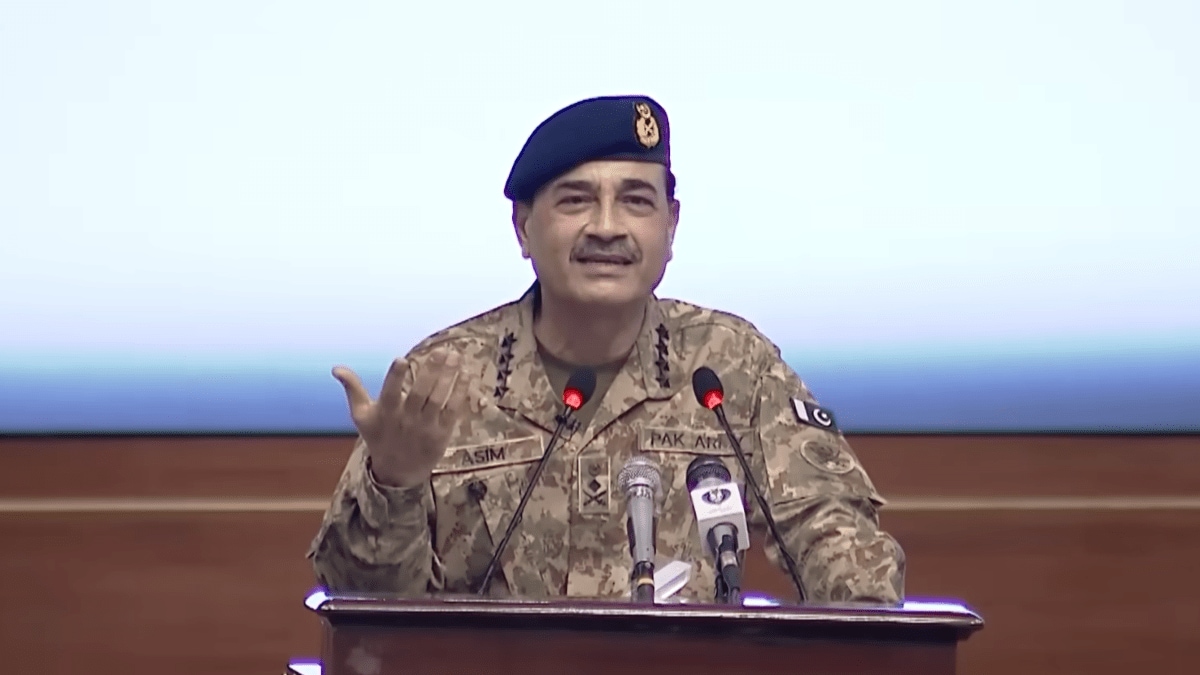Budget 2024: Finance Minister Nirmala Sitharaman will be presenting the the interim Budget for the fiscal year 2024-25 in the Lok Sabha on February 1. The full Budget will be revealed once the new government is established post the general elections.
ALSO READ
Budget 2024 Live Updates: Union Budget 2024 Live Streaming, FM Nirmala Sitharaman Budget 2024 Speech Live
Railway Budget 2024 Live Updates: Indian Rail Budget 2024 Live Streaming
Budget 2024 Income Tax Live Updates: Income Tax Slab Rate Change Budget 2024 Live Updates
Budget 2024 Stocks to Focus: Union Budget 2024 Impact on Share Market Today
Ahead of the interim budget 2024, the healthcare industry is demanding increased expenditure, equitable supply and utilisation and strategic investments and incentives that foster innovation, research, and development within the sector.
“We want to see a comprehensive approach to healthcare spending in the interim budget of 2024. The expenditure on basic healthcare, which includes treating common health concerns, giving necessary medications, caring for mothers and children, immunising, and other preventative actions, has been one of the main problems with the Indian health system. Equitable supply and utilisation, focusing on marginalised groups, outpatient care, and dynamic cost coverage are what must be prioritised,” said Ankur Gigras, CEO and Co-founder, HexaHealth.
Gigras also pointed out that emphasis should be placed on innovative medical technologies like artificial intelligence, which may improve the quality of life for patients during operations, speed up insurance claims for required procedures, and raise the efficacy of healthcare delivery overall.
“In order to pave the way for a healthier, more technologically sophisticated future for our country, we hope that the budget will acknowledge these problems and actively support efforts to address them,” he said.
Meanwhile, Viren Shetty, Executive Vice Chairman of Narayana Health maintains that the Indian healthcare sector’s growth is commendable, and it has benefited from dedicated policy and regulatory support from the government.
“Recognizing the need for providing Universal Health Care, we expect the interim Union Budget 2024-25 to unveil a roadmap for addressing long-term infrastructure financing, increasing the number of medical & nursing colleges, and fiscal reforms in the health insurance sector. India needs a health insurance model that prioritizes preventive healthcare over procedures, and Narayana Health is well placed to achieve this goal with the support of the government,” Shetty said.
Some experts also emphasised on the need to increased budget allocation for addressing the challenge of non-communicable diseases (NCDs).
Susanta Kumar Ghosh, Scientific Advisor at Eco BioTraps and Former Scientist G at ICMR-National Institute of Malaria Research, Bengaluru, said that in the 2023-24 budget plan, a substantial allocation of 89,565 crores had been designated for the health sector.
“The National Health Mission (NHM) is a pivotal initiative within this budget aimed at addressing both communicable and non-communicable diseases, significantly impacting health delivery. A commendable allocation of 35,947 crores had been directed towards NHM, encompassing comprehensive programs for both rural and urban health. Within the NHM framework, specific funds have been earmarked for the National Disease Control Programme, focusing on tuberculosis and vector-borne diseases,” Ghosh said.
It is noteworthy that the National Centre for Vector Borne Diseases Control (NCVBDC) primarily addresses six vector borne diseases such as malaria, Filaria, Kala-azar, Japanese Encephalitis, dengue and chikungunya besides other disease like Zika, West Nile Virus, Scrub Typhus, Kyasanur Forest Disease, Crimean-Congo Haemorrhagic fever are also come under the umbrella of NCVBDC.
“As per the available resources, the annual budget of NCVBDC is estimated to be around 1400 to 1500 crores. has received a dedicated budget of 1500 crores. NHM has an additional supportive budget of about 8 to 10%. Hence the total budget varies from 4200 to 4500 crores. Despite the importance of addressing vector-borne diseases, this sector only constitutes 10% of the NHM budget, amounting to 4000 crores. This amount is not enough when three diseases malaria, filaria and Kala-azar are under the process of elimination by 2030. A significant reduction of malaria cases have been recorded since 2015. About 90% of the malaria cases are concentrated in the 8 tribal states in 27 districts. Camp-based, DASTAK-like programme launched in Uttar Pradesh for effective control of Japanese Encephalitis should find a place with sufficient funding,” Ghosh pointed out.
Elimination of Lymphatic Filariasis (ELF) is now present in 272 endemic districts. “Special funding should also be made available for home-based morbidity case management. Also special financial assistance should be provided to the patients with Lymphedema needing integrative medicine. Currently less than 1000 patients are reported for Kala-azar. Strict monitoring would achieve the goal of elimination of mosquito-borne diseases. After all, ‘Log Bhagidar’ is the main focus on management of vector borne diseases effectively,” he added.
Some industry leader also urged that governement that budget should also focus on strategic investments and incentives that foster innovation, research, and development within the health tech sector.
“We must focus on strategic investments and incentives that foster innovation, research, and development within the healthtech sector, as technology plays a pivotal role in transforming healthcare. We suggest innovative strategies to incentivize research and development, such as tax exemptions or credits for businesses that invest in state-of-the-art equipment that improves telemedicine, diagnostics, and patient care. The effective deployment and uptake of healthtech solutions across the nation would be further ensured by a budgetary allocation specifically designated for the training of medical professionals in digital tools and technologies. We think that the government can stimulate the healthtech sector’s expansion, which will ultimately improve the accessibility, affordability, and quality of healthcare,” Harsimarbir Singh, Co-founder, Pristyn Care said.
Vikram Thaploo, CEO- Telehealth, Apollo Hospitals Enterprises Limited said that they look forward to potential changes in GST tariffs and services covered under healthcare, expecting measures to strengthen import regulations and create an environment conducive for the growth of indigenous manufacturers.
“We are optimistic about the upcoming budget, recognizing the critical role of technology in advancing healthcare. We anticipate the government’s commitment to furthering the adoption of digital health technologies, including IoT, AI, data analytics, and electronic health records, aligning with the National Digital Health Mission. We hope to see increased funding to boost the manufacturing of medical equipment domestically, fostering the ‘Make in India’ initiative and supporting local manufacturers. Additionally, we look forward to potential changes in GST tariffs and services covered under healthcare, expecting measures to strengthen import regulations and create an environment conducive for the growth of indigenous manufacturers,” Thaploo said.
He also said that their expectation is that the budget will prioritize investments in public health infrastructure, primary healthcare facilities, and essential medicines, while promoting telemedicine and digital healthcare solutions. “We urge the government to consider expanding Production-Linked Incentive (PLI) schemes to cover the development of supporting hardware for advanced digital technologies like Generative AI. Allocating resources for training and reskilling the workforce is crucial for optimizing the economic impact of these technologies, fostering both innovation and employment opportunities,” he added.
Dr. Narendra Vankar, Founder and CEO, Quantum CorpHealth said that this is India’s second post-pandemic budget, and unfortunately, last year’s budget for the healthcare sector was lacking.
“This year, it is imperative to focus on bettering India’s health infrastructure like more hospitals with an increased number of medical professionals for our growing population. More importantly, investing in advancements in technology and innovation will play a big role in improving the healthcare sector in India. Technology can be boosted through government intervention. There should be a collaboration between the private and public sectors to improve telehealth in India. We have seen India embrace digital technologies in other sectors like banking and education, so why not for healthcare also? Only a few years ago, it was shrugged off as being too complicated and inefficient, but with how rapidly we have evolved, we can now use a higher budget in healthcare to further improve the quality and accessibility of medical practice in India. According to reports, the healthcare industry has the potential to increase tenfold over the next decade, if we begin to improve now,” Dr. Vankar said.
The growing rate of the ageing population in India should also be a cause for concern. As medicine and healthcare improve, lifespans increase.
“However, we are lacking the ability to take care of the geriatric population as nursing homes are being overloaded and private care homes are only accessible for an elite few. Large-scale companies and start-ups should come together to make this niche ecosystem a more equitable space for all. While there are government policies available for senior citizens like the Rashtriya Vayoshri Yojana to provide assisted living devices, their healthcare is not taken seriously enough. We need more robust policies for the elderly, especially those who are living alone,” Dr. Vankar emphasised.
When it comes to corporate healthcare, there is a lack of policy when it comes to healthcare startups, he revealed.
“India needs to include regulatory policies in addition to the budget. The country needs to create a favourable funding environment for companies and startups which are supported by government schemes and policies. While the Ayushman Bharat Yojana aims to provide free health insurance access to low-income earners across the country, there needs to be a heightened focus on taking care of the health of our invaluable workforce and making sure that their health comes first, not only for the economic good of the country but also for their responsibilities to their families,” he added.
Meanwhile, Dr Ashutosh Raghuvanshi, MD and CEO, Fortis Healthcare & President, NATHEALTH said that as India navigates the critical path of healthcare reform, NATHEALTH has presented a comprehensive set of budget recommendations to the government, targeting transformative changes.
“Our proposals emphasize the need to bridge regional healthcare disparities through inclusive and innovative strategies. We are advocating for an increase in healthcare spending to 2.5% of GDP and the rationalisation of the GST framework. Additionally, we aim to enhance the medical value travel segment by addressing the MAT credit issue and strengthening the healthcare value chain, which is essential for driving economic growth and creating new job opportunities. A key focus should be on building local capabilities to deliver healthcare services even in the most remote regions, alongside the localization of the healthcare value chain. Equally important is the capacity building and training of healthcare professionals, which is crucial to cater to our nation’s increasing healthcare needs. These measures are fundamental to developing a resilient and efficient healthcare system in India,” Dr. Raghuvanshi said.
Rohit Mehta, Founder & Managing Director, ICPA Health Products Ltd. (ICPA) demanded inproved accessibility of healthcare services in rural India.
“With nearly two-thirds of India’s population residing in rural areas, access to medical services remains a critical challenge. This coupled with the fact that per capital income of an urban person is nearly double to that of his rural counterpart, it simply highlights the fact the if we have to improve our country’s standing on medical services, the focus should be the rural areas where lot needs to be done. The stark disparity in doctor-to-population ratios between rural and urban areas leaves the rural population significantly disadvantaged in healthcare access. Unfortunately because of this, the rural population fails to get the medical facilities greatly as compared to the urban. This we are talking about the basic medical health (largely catered by General Practitioners or MBBS doctors). However, specialists like heart surgeons and neurosurgeons are virtually absent in most rural areas, severely limiting access to advanced medical care,” Mehta said.
In the upcoming Budget, we urge the Government to prioritize rural healthcare in its budgetary allocations, investing both directly in infrastructure and medical personnel; and through targeted incentives to attract doctors and hospitals to underserved areas, he emphasised.
Dr. Sujit Paul, Group CEO at Zota Healthcare Ltd. maintained that to ensure affordable and world-class healthcare for the Indian masses, the Union Budget 2024 must prioritize key initiatives.
“Firstly, increasing healthcare budget allocation to 2.5% of GDP will bolster reforms and infrastructure nationwide. Secondly, a dedicated budget for upskilling healthcare workers, including pharmacists, is essential. Thirdly, implementing a PLI scheme for the healthcare sector will incentivize entities to enhance health infrastructure. Restructuring the healthcare GST framework addresses taxation challenges for providers. Additionally, integrating generic medicines into Ayushman Bharat yojana eliminates out-of-pocket expenses. Embracing telehealth in Ayushman Bharat yojana is crucial. The Budget’s positive focus on pharmaceutical R&D promises innovation and breakthroughs, fostering an environment for an Atma Nirbhar Bharat. Success hinges on sustained funding, industry collaboration, and attracting diverse talent while maintaining safety standards, aligning with our goal of advancing a healthcare system tailored to the masses’ needs,” Dr. Paul said.
Shyatto Raha, Founder & CEO, MyHealthcare said that government should actively explore the opportunity of engaging healthcare start-ups, to build a partnership between National Health Authority and healthcare providers, in implementation of clinical ecosystems such as electronic medical records(EMR).
“This will help in building a digital, patient longitudinal history, which through the NHA ecosystem can deliver the unified healthcare system for patients. The deployment of EMRs will help in standardisation of healthcare delivery, offer better insights into clinical data analytics, which can help healthcare providers to manage the complete patient care continuum and deliver better care outcomes. This comprehensive approach not only encourages healthcare providers to embrace digital technologies but also empowers entities like ours to significantly contribute to the government’s vision in building an effective healthcare system for India. We hope the Union Budget 2024, will lay emphasis in building an implementation roadmap for healthcare digitalisation, which incentivises the healthcare sector to achieve Prime Minister Narendra Modi’s vision for Amrit Kaal 2047 and delivering quality healthcare for all,” Raha said.
Narasimhan Narayanan, President – EssilorLuxottica South Asia said that it is crucial to emphasise the importance of healthcare support, specifically regarding visual health.
“More than half of the population in India requires some form of correction, of which currently, only 37% receive it. In line with the WHO Vision 2030 goals, we urge the government to allocate support and establish a comprehensive policy framework to address visual issues effectively. We must prioritise combating myopia and promoting eye health for greater productivity of the country. The private sector looks forward to stronger public-private partnerships to create awareness and develop viable solutions. To address the challenges of access and affordability in eyecare, we hope the budget allocates resources for initiatives such as subsidising eyecare products, investing in infrastructure related to eyecare services, and increasing awareness among communities. We hope the budget enables a future where quality healthcare, including eyecare services, becomes a right for everyone,” Narayanan said.








